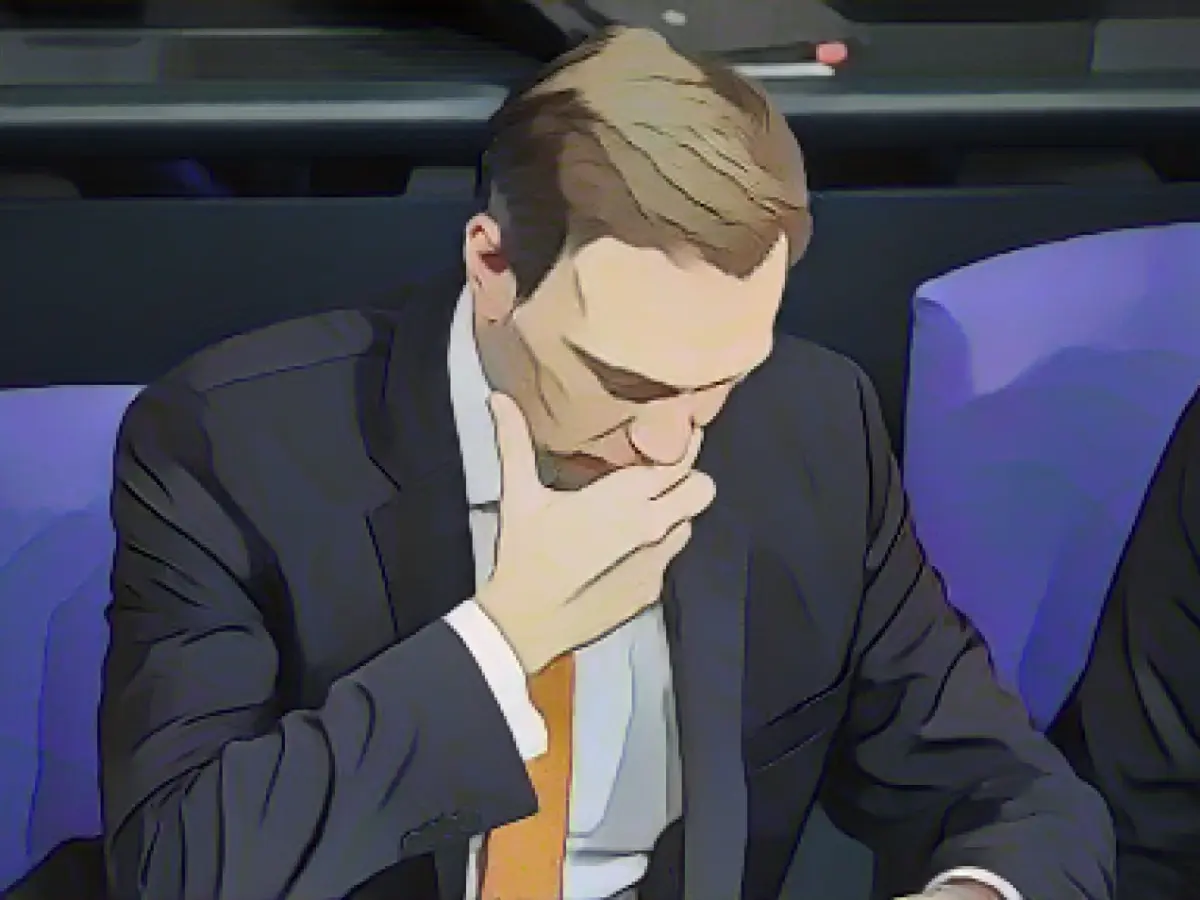Table of contents
- What does Lindner have in mind?
- Could the coalition do it alone?
- What would be the case for a major reform?
- And what do the opponents say?
- Why has the discussion arisen?
Questions and answers - Christian Lindner wants to keep the debt brake, but change something. What does the finance minister have in mind?
Federal Finance Minister Christian Lindner (FDP) continues to reject a fundamental reform of the debt brake, as demanded by the SPD and the Greens - but not a partial reform. He wants to tackle this in the coming year. The amount of possible debt should be more closely aligned with economic fluctuations. However, some CDU/CSU minister presidents also want general changes to the mechanism for limiting public debt, as they want to enable more investments that only pay off later. Others in the CDU/CSU are against this, and have now been joined by Schleswig-Holstein's head of government Daniel Günther.
Lindner told the Redaktionsnetzwerk Deutschland that there are plans to revise the calculation of the so-called economic component, which allows more leeway in the event of a downturn. However, this has nothing to do with the current budget situation of the federal government.
What does Lindner have in mind?
"The intention is to adapt the calculation to the current state of economic research, which will change the fluctuation range," explained Lindner. "However, this will not increase the potential debt over several years. This is because the greater leeway in the downturn will be recouped in the upturn," he said. He wants to tackle the reform in 2024.
Could the coalition do it alone?
Following the budget chaos at federal level, the debt brake enshrined in the German constitution is being criticized because it only allows a certain amount of leeway for borrowing. A major reform demanded by the SPD and the Greens requires a two-thirds majority in both the Bundestag and the Bundesrat. However, the FDP and large sections of the CDU/CSU are opposed to this. According to RND, an amendment to the Basic Law is not necessary to adjust the economic component. The majority of the traffic light coalition would be sufficient, as only the implementing laws of the debt brake would have to be amended.
What would be the case for a major reform?
"I consider investment in the future to be absolutely necessary," Berlin's Reacting Mayor Kai Wegner (CDU) told the German Press Agency. "Neither Berlin nor other federal states nor the federal government can afford this from the budget." The investment and renovation backlog for transport routes, bridges, schools, police and fire stations is enormous because many things have been left to wear out over the years. It is also about attracting companies, especially in the east of Germany - and about retaining these companies. Wegner also sees enormous challenges in areas such as climate protection and housing construction. He is not interested in election gifts for more consumer spending, said Wegner, but "in the existentially important investments that our country needs now."
And what do the opponents say?
They include Friedrich Merz (CDU), head of the CDU/CSU parliamentary group, who had already rebuked Wegner for his position. Schleswig-Holstein's Minister President Günther also shares Merz's view. "Nothing will improve if we incur debt for the sake of debt and shift the burden onto future generations," Günther told dpa. "We must not permanently spend more money than we take in." Governments must take this into account. "I think the debt brake is right, as is the current set of rules," he said. "We have to take money into our own hands to invest in the future. But I fear that it would also be spent much more frivolously for other purposes if we were to change the rules now." This has often happened in the past.
Why did the discussion arise?
In mid-November, the Federal Constitutional Court declared the reallocation of 60 billion euros in the 2021 budget to the Climate and Transformation Fund null and void following a lawsuit by the CDU/CSU parliamentary group. The judges also ruled that the federal government may not set aside emergency loans for later years. This had created billions in gaps in the federal budget, which the coalition of SPD, Greens and FDP was only able to agree on how to finance after weeks of dispute this week.
Read also:
- Year of climate records: extreme is the new normal
- Precautionary arrests show Islamist terror threat
- UN vote urges Israel to ceasefire
- SPD rules out budget resolution before the end of the year
- Despite the calls for a fundamental reform of the debt brake by the SPD and the Greens, Federal Finance Minister Christian Lindner (FDP) remains opposed and instead proposes revising the calculation of the economic component, which would provide more leeway during economic downturns without increasing the potential debt over several years.
- If the traffic light coalition were to push for a major reform of the debt brake, they would need a two-thirds majority in both the Bundestag and the Bundesrat. However, the FDP and large sections of the CDU/CSU are opposed to this, and an amendment to the Basic Law may not be necessary to adjust the economic component, as only the implementing laws of the debt brake would need to be amended.
- Critics of a major reform of the debt brake, such as Friedrich Merz (CDU) and Daniel Günther (CDU), argue that incurring debt for the sake of debt and shifting the burden onto future generations is not sustainable, and they believe that the current debt brake mechanism is necessary to ensure fiscal responsibility.
Source: www.stern.de








